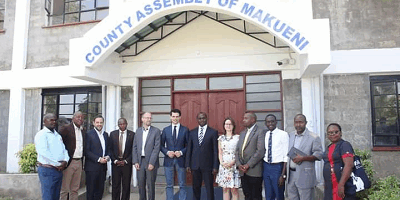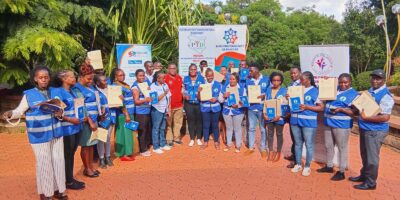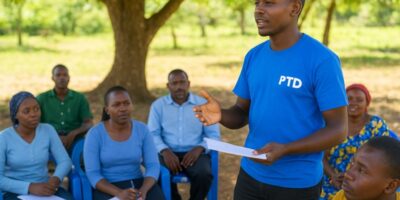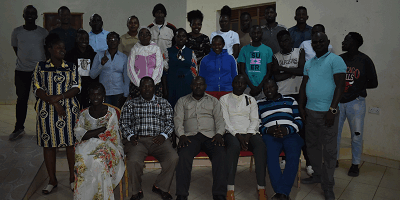Today, the Strengthening Civil Society Engagement for a Just and Sustainable Urbanization (SCEJU) project came alive in Makueni County through a powerful Training session held at Wote-Greenpark Social Hall. The session, facilitated by Mr. Joseph Kioko, brought together passionate civil society representatives, community leaders, and development actors, all united by a common vision — to make urban growth in Makueni just, inclusive, and sustainable.
As Makueni’s urban centers, especially Wote Town, continue to expand, the pressures on water resources and environmental systems are mounting. With projections showing that Wote’s population could surpass 100,000 people within the next decade, the need for sustainable water management has never been more urgent. Water is life — it sustains households, drives the economy, and anchors the resilience of communities. Yet, it is one of the resources most threatened by rapid urbanization and climate change.
During the training, Ms. Everlyne Mutua, the County Focal Point Coordinator, set the tone with heartfelt opening remarks that captured both the spirit and the urgency of the SCEJU initiative. She reminded participants that strengthening civil society organizations (CSOs) is key to ensuring that citizens have a voice in how their towns grow. She highlighted how organizations such as PTD Kenya, CWSHI, Kibwezi Well Wishers, and the Kibwezi Centre for Sustainability (KCS) have been instrumental in promoting inclusive community development.
Ms. Mutua emphasized the importance of sustainable water management in addressing the needs of vulnerable communities in Wote’s informal settlements — areas such as Kasarani, Slaughter, Shimo, and Kunda Kindu — where water scarcity and poor sanitation increase social and health risks. Her message was clear: “Urbanization must go hand in hand with sustainability, dignity, and equity.”
The training, led by Mr. Kioko, guided participants through five key modules focusing on water governance, sustainability, policy frameworks, and advocacy. Using interactive discussions, local examples, and lived experiences, the session helped participants connect county policies to community realities. They explored how existing laws such as the Water Act 2016, WASREB regulations, and the Makueni County Water Act 2020 shape water management — and why citizen awareness of these frameworks is essential for accountability.
One memorable moment came when a participant, Regina Mutindi, shared how families in her village observe simple but vital water-use rules — from cleaning jerricans with sand before fetching water to ensuring children drink treated water. Another participant, Callistus Mutiso, candidly admitted that he rarely cleaned his water containers, sparking laughter — and a teachable moment. As the trainer noted, these community practices are local reflections of national water standards — only that citizens are often unaware of them.
The training also shed light on the importance of Project Management Committees (PMCs), community participation, and sustainability committees in water projects like Kamunyolo Dam, Kwambila Dam, and Ndukuma Dam. These structures ensure accountability, inclusivity, and long-term maintenance of water systems.
Participants engaged deeply in discussions on how advocacy and lobbying can elevate community voices in water governance. They agreed that meaningful coordination among CSOs, county agencies, and citizens is vital in achieving lasting impact. As part of their action plan, the participants formed a WhatsApp group to continue exchanging ideas, monitoring progress, and collaborating on water initiatives across the county.
In their reflections, many acknowledged that Wote Town’s fast-growing population demands bold investments — including upgrading the rising mains from Mwaani Boreholes and Kamunyolo Dam, solarizing pumping systems to cut electricity costs, and increasing the number of storage tanks and water kiosks to meet future demand.
The training concluded with a moment of gratitude and unity. Mr. Josephat Kioko led the closing prayer, thanking SCEJU, the county leadership, the facilitator, and all participants for their dedication to creating lasting change.
The Makueni ToT session was more than just a training — it was a call to action. It reminded every participant that sustainability begins with awareness, grows through collaboration, and thrives through accountability. With strengthened civil society engagement, Makueni’s journey toward a just and sustainable urban future is already taking shape.
#SCEJUProject #SustainableUrbanization #WaterForAll #CivicEngagement #PTDKenya #MakueniCounty #JustUrbanFuture










